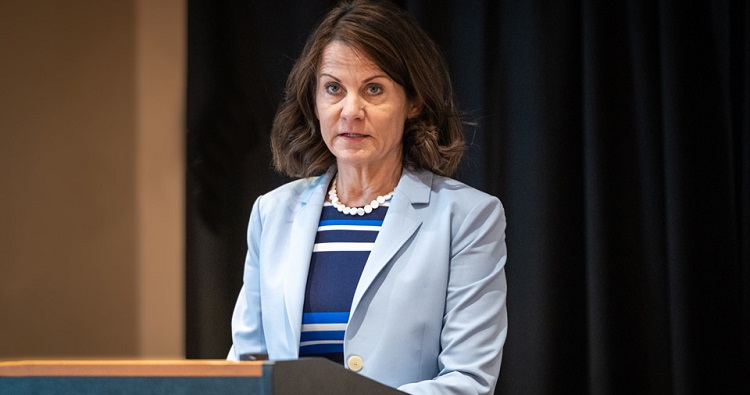US Ambassador “deeply concerned” over developments in Georgia around bill on transparency of foreign influence

She urged the Georgian Government to “recommit” the country to its Euro-Atlantic future “as written in the constitution”, and stressed the US remained “committed to [the] enduring relationship” and wanted “only peace, stability, and prosperity for the Georgian people”. Photo: US Embassy
Robin Dunnigan, the United States' Ambassador to Georgia, on Thursday said she was “deeply concerned” that in recent weeks the Georgian Government’s “choices have moved the country away” from its Euro-Atlantic future.
In her statement over the domestic bill on transparency of foreign influence, Dunnigan claimed the ruling party appeared “determined to advance” the legislation that the European Union had “clearly said” was “incompatible” with Georgia’s EU aspirations.
“Additionally, some in the ruling party have chosen to attack the greatest supporters of Georgia’s sovereignty, the United States and the European Union”, she noted.
We have stood next to Georgia at the negotiations with a country that occupies 20 percent of Georgia’s territory. We have supported the preservation of Georgia’s language, cultural heritage, and historical legacy. We have built a partnership over the last 32 years based on shared values and a shared desire to see Georgia as a member of the Western family of democracies”, Dunnigan said.
“We refuse to change our commitment to the Georgian people and to Georgia’s future, a future in Europe where all Georgians who have seen the benefits of our investments and programs know greater peace and prosperity will be found”, she noted.
The American diplomat further claimed that senior members of the Georgian Government had recently been invited to “engage directly with the most senior leaders” in the United States to discuss their strategic partnership and address “any concerns” with United States assistance, before adding “unfortunately, the Georgian side chose not to accept this invitation”.
She urged the Georgian Government to “recommit” the country to its Euro-Atlantic future “as written in the constitution”, and stressed the US remained “committed to [the] enduring relationship” and wanted “only peace, stability, and prosperity for the Georgian people”.
The Georgian bill calls for the registration of non-commercial legal entities and media outlets in the country as “pursuing the interests of a foreign power” if they derive more than 20 percent of their funding from abroad.
Its reintroduction by the ruling party after the draft law’s retraction following public protests last year has been met by rallies in the country and criticism by some of Georgia’s international partners.
 Tweet
Tweet  Share
Share